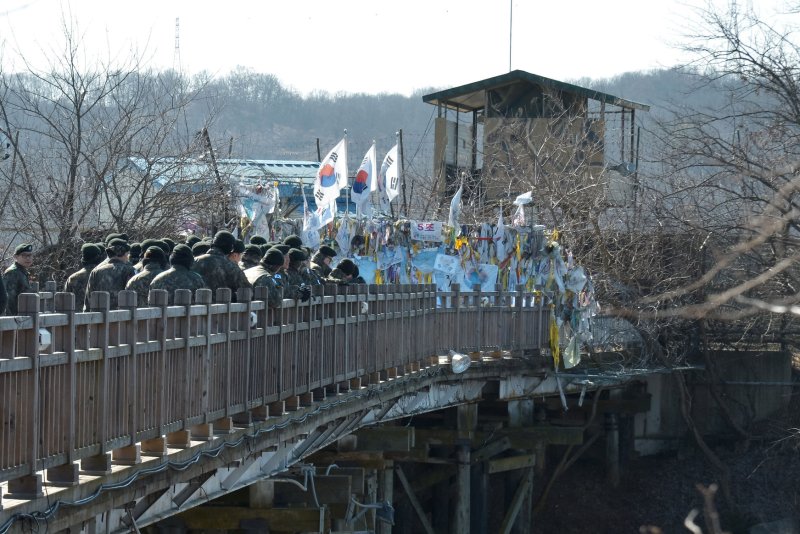South Korean soldiers visit the Imjingak Pavilion near the demilitarized zone in Paju, South Korea. Seoul is struggling to contain a controversy involving posthumous awards to relatives of North Korea founder Kim Il Sung. File Photo by Keizo Mori/UPI |
License Photo
SEOUL, June 29 (UPI) -- South Korea is backtracking on an earlier decision to maintain posthumous honors for two colonial-era independence activists, because the honorees are the biological relatives of North Korea founder Kim Il Sung.
The decision took the public by surprise. As recently as Monday, Seoul's ministry of patriots and veterans affairs had said at least one of the honorees, Kang Jin-seok, died in 1942 before Kim founded the communist party in 1945, absolving him of any ties to the present-day North Korean regime.
Kang was the older brother of Kang Pan Sok, Kim's mother, and the second honoree, Kim Hyung-kwon, was the paternal uncle of the North Korean founder.
The ministry conferred the decorations to the two individuals posthumously, in 2010 for Kim and in 2012 for Kang, Yonhap reported.
But public awareness of their family ties is of concern to Seoul.
On Wednesday, the ministry said it will "actively review ways to screen candidates for the independence activism honors, in order to meet a new merit criteria."
The honorees' status as relatives of Kim Il Sung has caused controversy, the ministry stated Wednesday, adding that the government is looking into ways to "cancel as soon as possible" the posthumous honors through legal amendments and a committee review, according to local news service Newsis.
The decision comes a day after Veterans Affairs Minister Park Seung-chun told the National Assembly's Political Affairs Committee at a hearing he would "look into" the possibility that Kim Il Sung's parents could also be conferred the posthumous decoration.
The government is concerned that statement could bring about repercussions, according to South Korea press.
Under Cold War-era dictatorships, South Korea blacklisted individuals for political actions and beliefs, and their families were marked with guilt by association through the anti-communist implicative system until its repeal in 1981.















